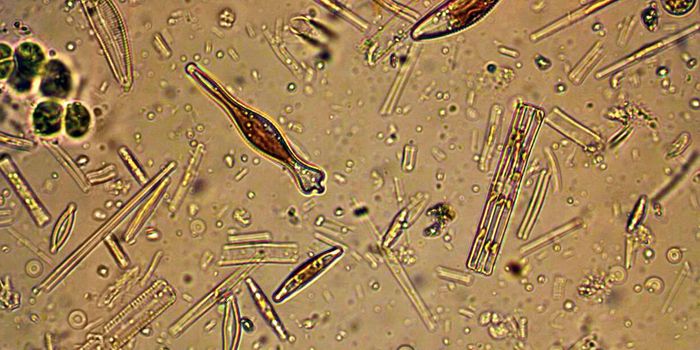Why We Gain Weight as We Get Older
As people get older, they tend to start putting on weight. New work from an international team of researchers can help explain that; the turnover of fatty acids called lipids in the fat tissue slows down. That makes it easier for people to gain weight even if they aren’t consuming more calories or reducing the amount that they exercise. The study, which used data obtained from human volunteers, has been reported in Nature Medicine and is described in the following video.
"The results indicate for the first time that processes in our fat tissue regulate changes in body weight during aging in a way that is independent of other factors," said one of the study authors Peter Arner, a professor at the Department of Medicine in Huddinge at the Karolinska Institutet. "This could open up new ways to treat obesity."
In this work, the researchers assessed fat cells taken over an average of thirteen years from 54 male and female study participants. Over the period the cells were assessed, every subject displayed a reduction in the rate at which fat was removed from their fat tissue and stored - slower lipid turnover. This happened whether the participants gained weight or lost it over that time. If a study subject did not eat less to compensate for the reduction in lipid turnover, they gained an average of twenty percent of their weight.
The scientists also assessed fat cells from 41 women that had undergone bariatric surgery, focusing on the period four to seven years after their surgeries. Only women that had a low lipid turnover rate prior to surgery were able to increase the turnover and maintain the loss of weight. People that had a high turnover rate before surgery had less room to increase it, suggested the researchers, and were less likely to maintain their weight loss.
Previous work has suggested that lipid turnover rates can be raised by exercising more. This work supports that finding and indicates that weight loss surgery recipients could improve their long-term results by being more active.
"Obesity and obesity-related diseases have become a global problem," said study author Kirsty Spalding, a senior researcher at the Department of Cell and Molecular Biology at the Karolinska Institutet. "Understanding lipid dynamics and what regulates the size of the fat mass in humans has never been more relevant."
Sources: Science Daily via Karolinska Institutet, Nature Medicine


![Master Lab Weighing: Accuracy, Compliance & Audits [eBook]](https://d3bkbkx82g74b8.cloudfront.net/eyJidWNrZXQiOiJsYWJyb290cy1pbWFnZXMiLCJrZXkiOiJjb250ZW50X2FydGljbGVfcHJvZmlsZV9pbWFnZV85MWRmZmRjMDIwNDBlMWJjMzYwN2ZiYWY2ZjI4ZGMzYzBmZGMwZGMyXzkxOTcucG5nIiwiZWRpdHMiOnsidG9Gb3JtYXQiOiJqcGciLCJyZXNpemUiOnsid2lkdGgiOjcwMCwiaGVpZ2h0IjozNTAsImZpdCI6ImNvdmVyIiwicG9zaXRpb24iOiJjZW50ZXIiLCJiYWNrZ3JvdW5kIjoiI2ZmZiJ9LCJmbGF0dGVuIjp7ImJhY2tncm91bmQiOiIjZmZmIn19fQ==)






